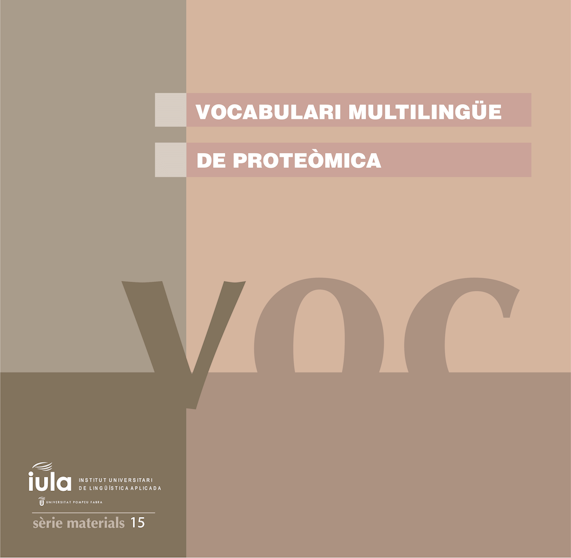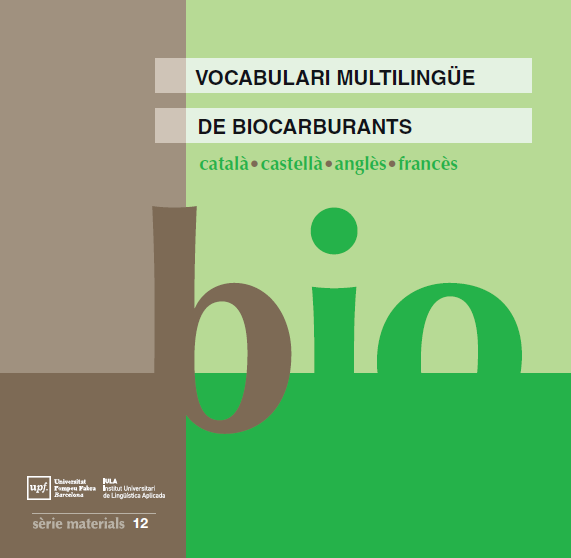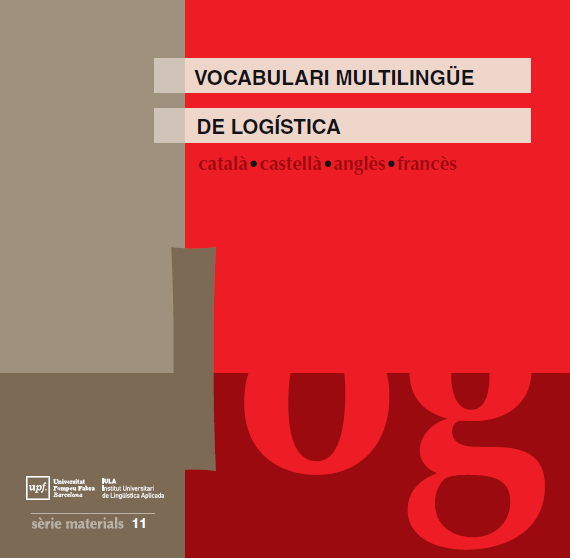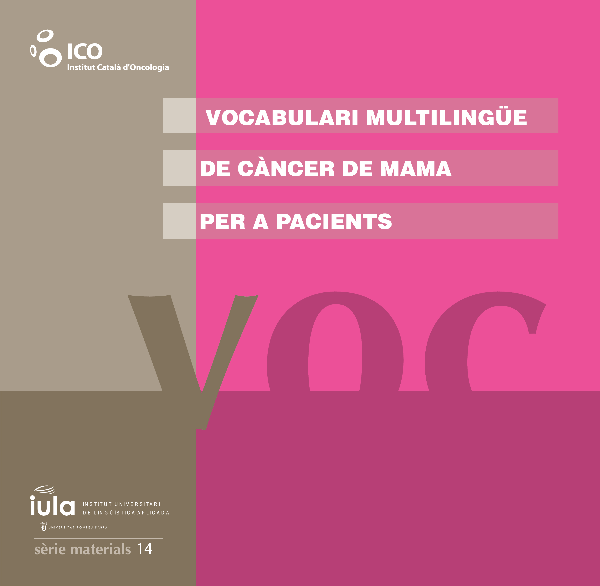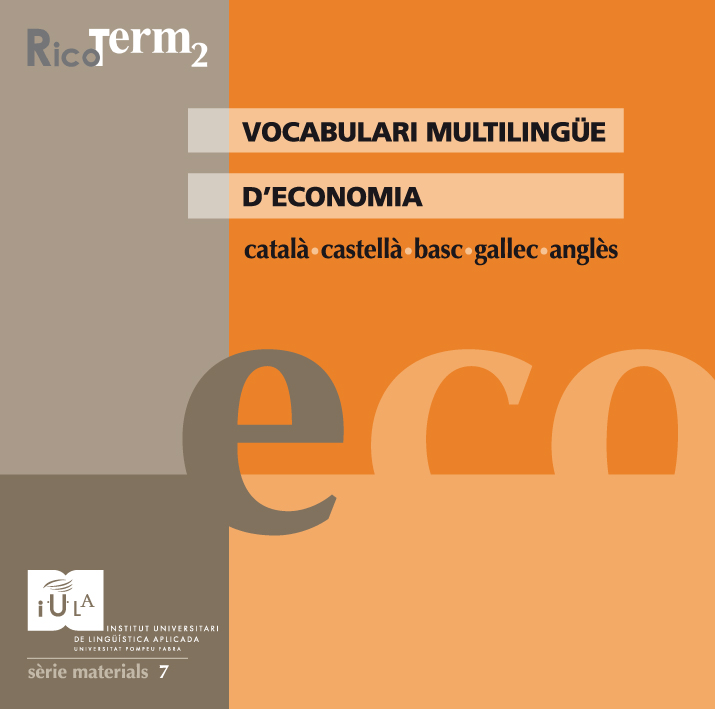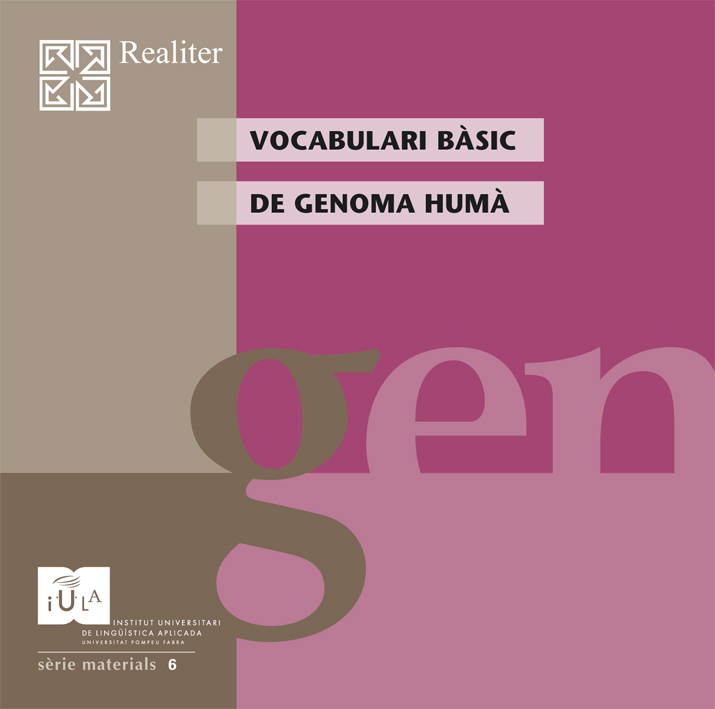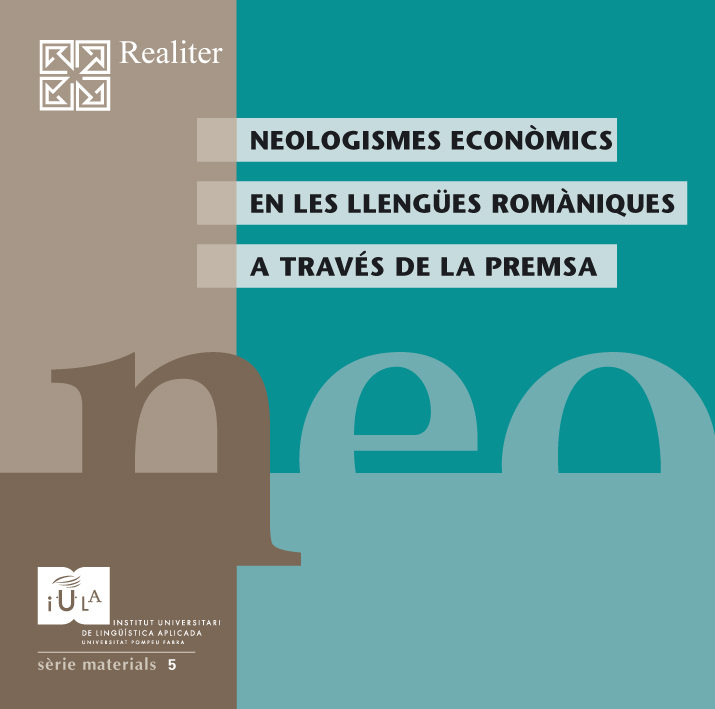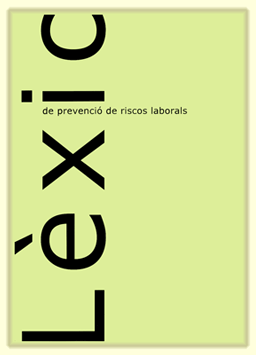Specialized vocabularies
Multilingual proteomics vocabulary (2023)
The Multilingual proteomics vocabulary is a project developed by the Institute for Applied Linguistics (IULA) of the Universitat Pompeu Fabra with the collaboration of the Proteomics Unit of the Center for Genomic Regulation (CGR), and is aimed primarily at students, researchers and linguistic mediators. It is a basic vocabulary in Catalan with definitions and equivalents in Spanish and English, built from the analysis of a corpus of scientific texts.
Multilingual Vocabulary of Biofuels (2023)
The Multilingual Vocabulary of Biofuels is a project developed by the Institute for Applied Linguistics (IULA) from Pompeu Fabra University within the framework of the ongoing cooperation with the Pan-Latin Terminology and Neology Network REALITER, which brings together working groups from universities and other institutions that collaborate for the creation of basic terminology resources on emerging topics of general interest in all Romance languages.
Multilingual Vocabulary of Logistics (2023)
The Multilingual Vocabulary of Logistics is a project developed by the Institute of Applied Linguistics (IULA) of the Pompeu Fabra University within the framework of a collaboration with the Office québécois de la langue française (OQLF) of the government of Québec (Canada), which is It is aimed primarily at students, professionals, researchers and linguistic mediators. It is a basic vocabulary in the Catalan language with definitions and equivalents in Spanish, English and French, built from the analysis of a corpus of specialized texts.
Multilingual Breast Cancer Vocabulary for Patients (2022)
The project Multilingual Breast Cancer Vocabulary for Patients is one of the results of the collaboration between the Institute for Applied Linguistics (IULA-CER) of the Universitat Pompeu Fabra and the Institut Català d'Oncologia (ICO), affiliated to the Generalitat de Catalunya. This vocabulaty has Catalan as its main language and includes definitions and equivalents in English and Spanish.
Multilingual Vocabulary of Economics (2008)
The Multilingual Vocabulary on Economics. English, Spanish, Basque, Catalan and Galician is one of the results, on a lexicographical resource, of the project RICOTERM-2. Control terminològic i discursiu per a la recuperació d’informació en àmbits comunicatius especialitzats, mitjançant recursos lingüístics específics i un reelaborador de consultes (HUM2004-05658-C02-00), financed by the Plan Nacional I+D+I from the Ministerio de Educación y Ciencia for the period 2004-2007, coordinated between the Universitat Pompeu Fabra and the Universidade de Santiago de Compostela, and in which researchers from the Euskal Herriko Unibertsitatea and the Universiteit Antwerpen have also participated.
Basic Vocabulary of the Human Genome (2007)
The project Vocabulary of the Human Genome (Biotechnology 2), approved in 2003 at the plenary meeting of REALITER, includes the most common basic terminology used in genomics texts. It features selected entries in English and equivalents in peninsular Spanish, American Spanish, French, Italian, Galician, Portuguese and Catalan. In addition to information on equivalents, users can find grammatical information and synonyms documented as variants in each of the languages.
Economics Neologisms in Romance Languages in the Press (2006)
The project Economic neologisms in Romance languages in the press has been developed as part of REALITER starting in November 2000, when it was presented and approved at the plenary meeting in Lisbon. In mid-2002, the database that is currently being published was closed.
Occupational Risk Prevention Vocabulary (2004)
The Occupational Risk Prevention Vocabulary aims to be a tool that responds to a set of linguistic and conceptual needs of specific users who find themselves in particular communicative situations. It is designed for professionals of occupational risk prevention and is designed for them to use in their daily activity when they produce texts in Catalan.

